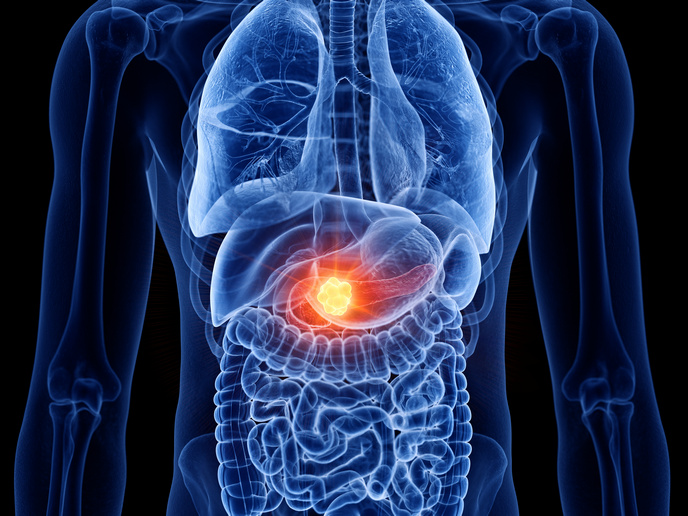Spotting cancer in the pancreas earlier with AI
The EU-funded PANCAIM(opens in new window) project is revolutionising the care of patients suffering from pancreatic ductal adenocarcinoma (PDAC). This highly aggressive and lethal form of pancreatic cancer accounts for over 90 % of pancreatic cancer cases. Since its launch in 2021, PANCAIM has been developing an AI algorithm that will help doctors detect the cancer earlier and personalise treatment for patients. Pancreatic cancer is on its way to becoming the second leading cause of cancer-related death by 2030. Although less common than many other cancers, its low survival rate – mostly owing to late diagnosis and treatment – makes it one of the four deadliest cancers in both women and men. PANCAIM is working to change this grim picture by relying on the three pillars of future personalised medicine: radiological and pathological data combined with genomic information. As reported in a recent news item(opens in new window), it aims to be the first to optimise and integrate pancreatic cancer genomics, phenomics – the image analysis and integration of biological data – and clinical parameters using AI. The project builds on four central concepts of AI healthcare: clinical expertise, large amounts of carefully documented real-world data, AI developers and medtech companies to introduce AI into healthcare. Swedish project partner Collective Minds Radiology has developed the PANCAIM cloud repository that collects and hosts a wide range of imaging, genomics and clinical PDAC data. Six clinical partners are providing almost 6 000 patient data sets, while three partners are contributing their expertise in healthcare AI across all relevant treatment modalities.
Spotting them small
Year two of the project was a significant milestone. PANCAIM developed the first unimodal AI algorithm capable of detecting small cancers on computerised tomography imaging that even experienced radiologists might easily overlook. This algorithm has now been exclusively implemented via a cloud platform owned by German consortium partner Siemens Healthineers. In May 2023, the AI algorithm was used on a real pancreatic cancer case at Swedish project partner medical university Karolinska Institutet, “paving the way towards widespread validation of the PANCAIM AI-algorithms in clinical routine settings.” PANCAIM now intends to upscale unimodal AI algorithms to promote the development of multimodal AI models that combine multiple types, or modes, of data to make more accurate diagnoses. University of Glasgow Prof. David Chang states in the news item: “It is incredibly exciting to be part of this innovative consortium, and seeing the possibility of applying artificial intelligence algorithm to clinically generated data, such as radiology, pathology, and other experimental data such as molecular profiling, to help better manage patients with pancreatic cancer.”
Man vs machine
PANCAIM (Pancreatic cancer AI for genomics and personalized Medicine) is also organising the first ever large-scale study comparing radiologists and AI for pancreatic cancer diagnosis. Called PANORAMA(opens in new window), the study will consist of two sub-studies: an AI study, in which AI development teams use clinical data to develop pancreatic cancer detection AI models, and a reader study(opens in new window) in which over 40 international radiologists will be asked to assess around 400 pancreatic cancer cases from multiple institutions. Abdominal radiologists routinely handling contrast computerised tomography scans who are interested in joining the reader study can sign up using this form(opens in new window). For more information, please see: PANCAIM project website(opens in new window)



